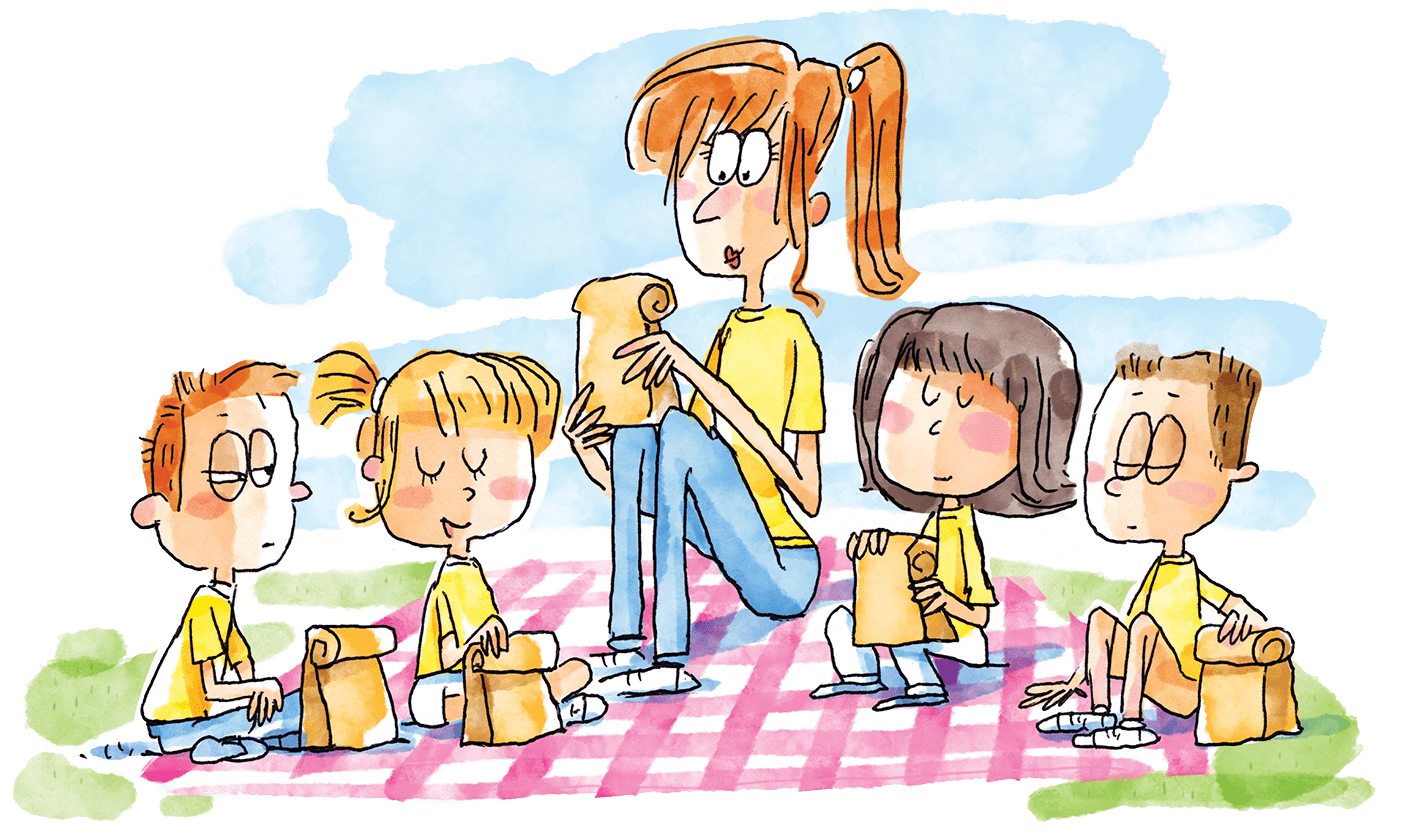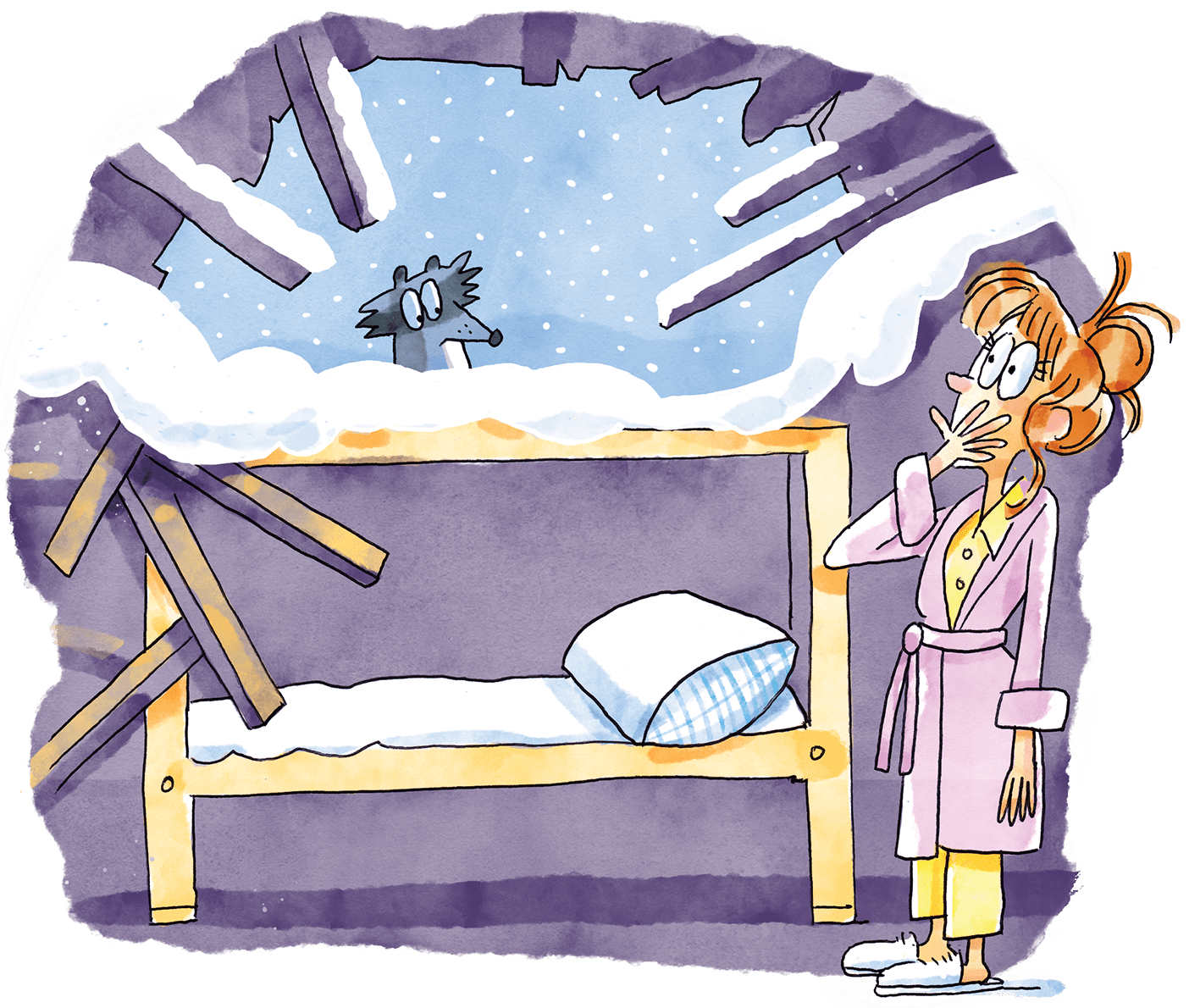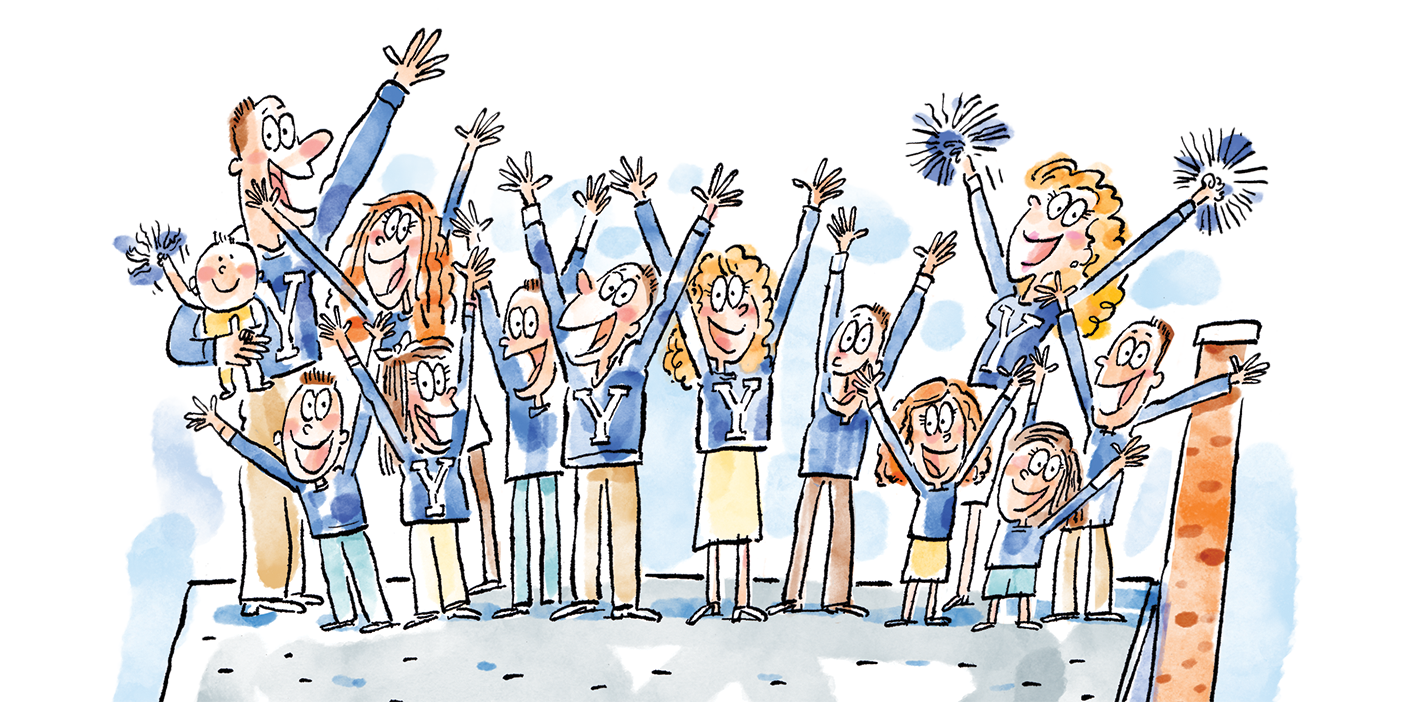Grads share tales from BYU’s mountain retreat, Aspen Grove.

Practical Prayer
By Betsy Drake Chatlin (BS ’80), Salt Lake City
In June 1965 my close friend Darlene Belnap Alder (BS ’70) and I directed the Kitten Korral for Aspen Grove Family Camp. We spent our days playing with the 3- to 12-year-old kids. Every Wednesday, we packed brown-bag lunches, and off we trekked up Mount Timpanogos. We would arrive at a meadow and sit in a circle to enjoy our food together.
Once, I asked 4-year-old Tammy to offer the blessing. That day, I learned a profound lesson as she said a heartfelt and practical prayer: “Dear Heavenly Father, we are in the meadow, and we have sack lunches. We have tuna fish sandwiches, and, Heavenly Father, I hate tuna fish sandwiches, but help me to eat it anyway. Amen.”
Texas on the Horizon
By Lawrence A. Bates (BS ’82), Gilbert, AZ
While working at Aspen Grove, one of my duties was to lead guests to the top of Mount Timpanogos, the 11,752-foot peak that overlooks the camp. We would leave early, enjoying the scenery at dawn.
We would typically arrive at the peak around midday, having been rewarded with wildflowers, wildlife, and unsurpassed views. At the peak, one can see for miles and miles in every direction.
One time, having arrived at the top, guests were oohing and ahhing at the panorama that stretched out forever in front of them. However, one fellow from Hereford, Texas, didn’t seem overly impressed with the experience.
In the true spirit of “everything’s bigger in Texas,” he gazed out over most of northern Utah from the summit of Timpanogos and muttered, “Humph, that’s nothin’. I can stand on my roof in Texas and see this far!”
Flood of Memories
By Cristie Atherton Gardner (BA ’73), Riverton, UT
The Aspen Grove staff during the summer of 1970 was fun, funny, gifted in performing arts, and committed to making a positive difference with our guests.
I was one of the servers. Every morning bright and early—long before the sun came over the horizon—we all sang as we set breakfast tables for the guests and sang again as we cleaned up afterward. We created some amazing harmonies, and the acoustics in the dining hall made us sound fantastic!
Georgia and Welburn Van Orman were the camp directors, and nobody could beat Georgia’s pancakes with blueberry syrup or Welburn’s genuine care for the employees.
Weekly firesides brought us inspiring messages from general authorities who brought their families for the week.
As staff members, we pulled our share of pranks: short-sheeting beds and turning dresser drawers upside down so clothes fell out when opened.
We hiked to the top of Timp, put on skits featuring villains and heroes, and sang at the weekly talent shows. At night, with nothing but the glorious stars so close and the smells and sounds of the pine trees, we’d pull out our guitars and sing some more. It was heaven.
Silent Weekend
By Jileen Gale Platt (BS ’96), Texarkana, TX
During the winter of 1993, my roommate begged me to join her for a silent weekend at Aspen Grove for extra credit in our American Sign Language class. I hesitantly agreed.
We were put in groups with a deaf adult leader. While I was still uncertain of my ASL abilities, our leader, Sherry, quickly put me at ease. She was incredibly kind and extremely patient with those of us who were struggling to communicate. With some difficulty, we chose a team name (Happy Monkey Family) and then got ready for bed. I will always remember my feelings when the lights were turned off and there was total silence.
The next morning, walking to breakfast, we listened to the sounds of the forest instead of chatting. We could hear the birds, our footsteps, and even the falling snow. The day was filled with laughter but no spoken words. I will always think fondly of that weekend and what it taught me about what I can hear and the new perspective it gave me on those who can’t.
When the World Came Crashing Down
By Michelle Wimber Hill (MA ’07), San Antonio
With two-story icicles and 10-foot snow banks, Aspen Grove in the winter is a different experience than in the summer. As a staff member for two years, I experienced not being able to open my car door because it was frozen shut, jumping into the snow to do a snow angel and sinking three feet down, and meeting moose families on the road and raccoons in the garbage.
But most exciting was the night when I was fast asleep in the women’s wing of the staff lodge. A loud crashing sound woke me, and I worried someone was breaking in. I lay frozen in my bed for about five minutes before I began looking in each empty room for the source of the sound. Nothing seemed amiss until the last room. While it didn’t register at first, part of the roof was missing! The heavy load of ice and snow had caved in a section of the roof, and the top bunk was totally covered in debris.

The next morning the staff immediately began clearing the snow off the roof. I was pretty lucky to be the only girl there that winter—and that I picked the room I did.
Returning to the Aspens
By Kristi Tilford Meyers (BS ’93), Chino Hills, CA
As a young girl, I loved the autonomy that Aspen Grove provided me. I still have no idea what my parents did there all day, but I was off with other campers pounding designs into leather, making stained glass, and playing games.
On family hikes I remember the crisp, clean scent of mountain air and the distant sound of the waterfall—rushing and powerful, yet soothing and beautiful. And I remember the wind in the aspens. Those round, papery leaves blowing against the beauty of their white trunks caused my mind to stop, listen, and feel peace.
Those experiences have stayed with me into adulthood. That forest of aspens was the place I went to calm my mind when I struggled with insomnia resulting from continual itching, a symptom of lymphoma. It was the place I went when, after repeatedly being confined in a PET scan for 30 minutes at a time, I struggled with claustrophobia. And that forest of aspens is still the place I go in my mind when things get crazy and life closes in. I will always be grateful to Aspen Grove for giving me that peace.
CALL FOR STORIES: Lighter Burdens
One of BYU’s signs reads, “Enter to Learn; Go Forth to Serve.” But most BYU students don’t wait for graduation to find ways to provide meaningful service to those around them. Were you a big brother or sister, a listening ear, or a volunteer? Or perhaps a campus Samaritan reached out to you in a time of need. If, during your time at BYU, you provided or witnessed worthy works or clever kindnesses—big or small—please send us your story. Deadline: Dec. 3.
BYU Magazine pays $50 for stories published in First Person. Send anecdotes (of up to 300 words) to firstperson@byu.edu. Submissions may be edited for length, grammar, appropriateness, or clarity.












